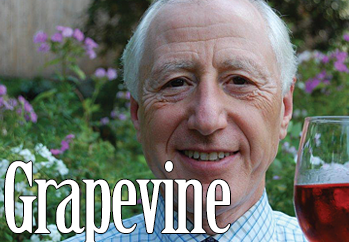A Family Mosaic Delves Into a Cultural Heritage
Opinion Advocates for ideas and draws conclusions based on the author/producer’s interpretation of facts and data.
 The United States has long been the melting pot of world ethnicities and cultures. The mosaic of our land has shifted over the last 400 years from the early Native Americans and colonists to today’s vibrant mélange of nationalities from every corner of the globe.
The United States has long been the melting pot of world ethnicities and cultures. The mosaic of our land has shifted over the last 400 years from the early Native Americans and colonists to today’s vibrant mélange of nationalities from every corner of the globe.
Many of us have a family history of such a mosaic as well. When the waves of immigrants from Europe came to our shores in the 18th, 19th and early 20th centuries, many settled in self-contained enclaves throughout the United States.
In the mid- to late-20th century, the melting pot became much more inclusive, as cultural and religious bonds began to unravel. In many cases, first-generation offspring of immigrants became better educated and more affluent, driving them to explore other cultures and ethnic groups. Italians began marrying Irish, English married Germans and those with eastern and western European backgrounds began marrying those with eastern Asian nationalities.
Today, the mosaic that is America goes beyond neighborhoods and enclaves; it permeates our families. Multiethnic families are becoming more the norm than the exception they were a mere 50 to 60 years ago.
I came of age when the United States was going through a core change – politically, socially, economically – and demographically. My Italian parents (I am first-generation American) were a bit taken aback when I brought home Kathy Higgins to meet them. I then became the first in our family to marry outside of our nationality. Many of my friends and relatives followed suit.
These cross-ethnic marriages of Italians and Irish brought about lively conversations around our family dinner tables for many decades. Invariably, we sought to one-up each other with the accomplishments and contributions of our forebears.
Here is how a typical back-and-forth might unfold:
Me: Italian architecture and engineering are unparalleled, from cathedrals to city planning to vast water systems.
My Irish brother-in-law: An Irishman invented the submarine and the military tank, both indispensable to modern day warfare.
Me: Vivaldi, Verdi, Rossini composed beautiful pieces that are popular to this day.
My other Irish brother-in-law: But none could fill a stadium like U2.
Me: Italian authors shaped the discourse of worldly matters for centuries, from Boccaccio to Machiavelli.
My Irish sister-in-law: But they couldn’t make you laugh or cry like Joyce, Wilder or Yeats.
Me (in a rising tone): Don’t you understand? The Italians (Romans) virtually created western civilization.
My Irish sister-in-law (with rising confidence): Excuse me. The Irish saved civilization. St. Patrick and his monks transcribed much of Western Europe’s endangered scholarly tomes during the battles of the Dark Ages, preserving centuries of history and academic scholarship.
Me: Alright, top this: wine. Italy produces an enviable number of the finest wines in the world, from Barolo to Brunello. Ireland has no wine.
My brother-in-law: Wine? Who produces a better elixir of the gods than Guinness? And then there is the nectar of the gods produced by the Irish wineries in the French Bordeaux region.
Me: What do the Irish have to do with French Bordeaux? You’ve had one too many pints.
My brother-in-law (in his best “gotcha” voice): Take a listen. In 1691, a number of Irish escaped political oppression, settling in the Bordeaux region of France. There they became wine merchants, shipping French wines back to Ireland. These wines were served as the beverage of choice at inns throughout the Emerald Isle. Mind you, this was in the time before Guinness changed Irish drinking habits forever.
These merchants then began to invest with locals in wineries. Today there are at least 14 world-class wineries that were founded through Irish initiatives. Ever wonder about several of the names of famous Bordeaux wineries such as Lynch-Bages, Leoville Barton, Phelan Segur or Pichon-Lalande (where a Mr. Burke was a founding partner)?
What do you have to say for yourself?
Me: A tip of my glass to great wine coming from unlikely beginnings.
My brother-in-law: Fine, now pour me another glass of Chianti.
Nick Antonaccio is a 45-year Pleasantville resident. For over 25 years, he has conducted wine tastings and lectures. Nick is a member and program director of the Wine Media Guild of wine journalists. He also offers personalized wine tastings. Nick’s credo: continuous experimenting results in instinctive behavior. You can reach him at nantonaccio@theexaminernews.com.

